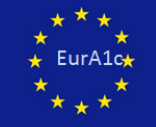
European HbA1c Trial (EurA1c)
IEQAS has been collaborating with this project annually since it was established in 2016, now involving 27 EQA organisers in 23 countries. Two samples are distributed simultaneously via multiple EQA organisers to establish a European-wide picture of HbA1c performance. The project is part of the IFCC Committee for Education in the Use of Biomarkers in Diabetes (C-EUBD). The success of this EurA1c project highlights the importance of EQA in driving analytical quality improvement and follows on from the successful 2011 implementation of International Standardisation of HbA1c in Ireland.
EurA1c 2016 Report: "Ireland Best Performance Testing" The 2016 EurA1c data shows that Irish (IEQAS) participants demonstrated the best performance of the 10 countries collaborating in the fresh blood element of the survey.
| EurA1c 2023 Report | EurA1c 2022 Report | EurA1c 2020 Report |
| EurAAA1c 2019 Report | EurA1c 2018 Report | EurA1c 2017 Report |

